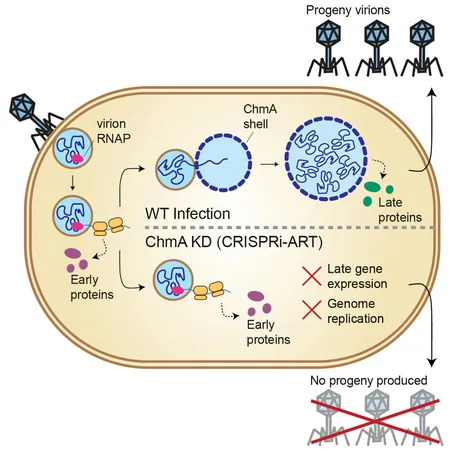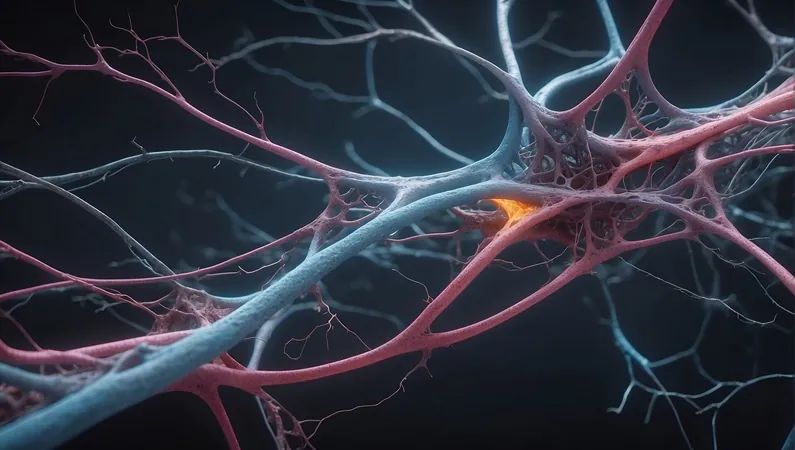
Scientists Unveil Groundbreaking Mechanism of Jumbo Phages: A Game-Changer in the Battle Against Antibiotic Resistance
2025-04-03
Author: Li
Introduction
In a startling revelation, researchers have discovered a unique cloaking mechanism employed by jumbo phages—giant viruses that target bacteria—opening new avenues in the fight against the escalating antibiotic resistance crisis. With millions of deaths attributed to resistant infections each year, finding new forms of treatment has never been more critical.
The Study by UCSD
A team from the University of California San Diego (UCSD) has conducted a trailblazing study on these jumbo phages, a remarkable class of bacteriophages that could potentially revolutionize our approach to drug-resistant infections. The study was published in the prestigious journal *Cell Host & Microbe*, detailing how these viral giants have evolved extraordinary strategies to invade bacterial cells.
The Arms Race Between Bacteria and Viruses
For centuries, an arms race has existed between bacteria and viruses, where each party continually adapts and counter-adapts. Viruses innovate ways to penetrate bacterial defenses while bacteria evolve resistance mechanisms. Through this latest research, scientists have uncovered insights into how jumbo phages not only successfully invade their bacterial hosts but also remain undetected by the bacteria's immune response.
The Early Phage Infection Vesicle (EPI)
The innovative study introduced the concept of the Early Phage Infection vesicle (EPI), a specialized membrane-bound sac utilized by jumbo phages from the Chimalliviridae family. This remarkable structure is formed immediately after a phage infects a bacterial cell, creating a protective environment that conceals essential viral DNA needed for the phage's replication process.



 Brasil (PT)
Brasil (PT)
 Canada (EN)
Canada (EN)
 Chile (ES)
Chile (ES)
 Česko (CS)
Česko (CS)
 대한민국 (KO)
대한민국 (KO)
 España (ES)
España (ES)
 France (FR)
France (FR)
 Hong Kong (EN)
Hong Kong (EN)
 Italia (IT)
Italia (IT)
 日本 (JA)
日本 (JA)
 Magyarország (HU)
Magyarország (HU)
 Norge (NO)
Norge (NO)
 Polska (PL)
Polska (PL)
 Schweiz (DE)
Schweiz (DE)
 Singapore (EN)
Singapore (EN)
 Sverige (SV)
Sverige (SV)
 Suomi (FI)
Suomi (FI)
 Türkiye (TR)
Türkiye (TR)
 الإمارات العربية المتحدة (AR)
الإمارات العربية المتحدة (AR)